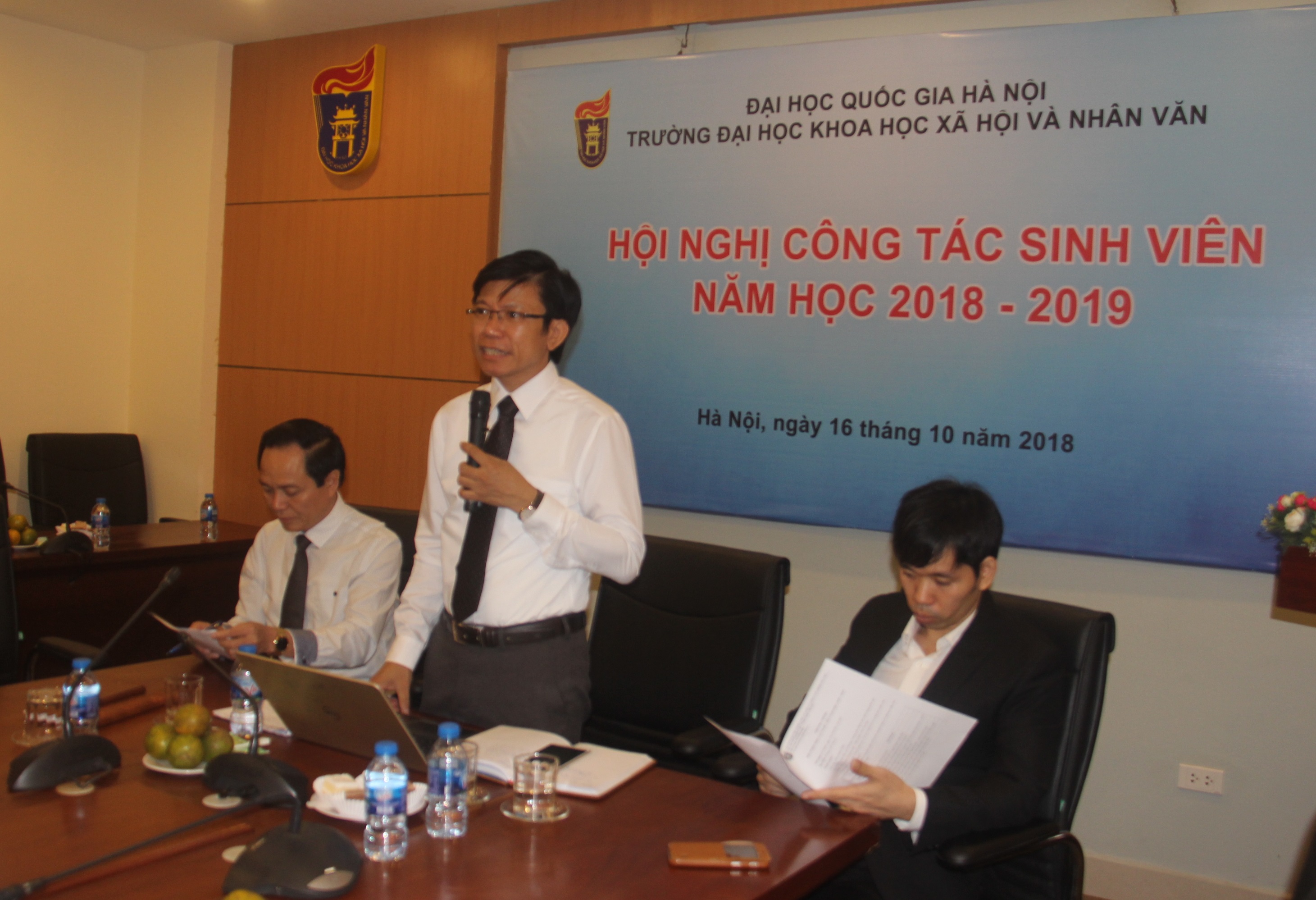
Society is changing too fast…
In his opening remarks at the conference, Assoc. Prof. Dr. Hoang Anh Tuan (Vice Rector of the University) acknowledged the positive developments in the University's student affairs work during the past academic year, while emphasizing the need for innovation to adapt to a rapidly changing world and societies, with four key words defining the VUCA world concept: Volatility, Uncertainty, Complexity, and Ambiguity. The current VUCA world poses challenges on a global scale, not only in the political and economic fields, but also for higher education. Therefore, universities are facing many challenges; students are facing many difficulties upon graduation. In this context, the University's student affairs work needs to be reformed more quickly and updated more frequently, especially given that the University has just welcomed over 2,000 new students in the 2018 cohort – the first generation of 10X students.
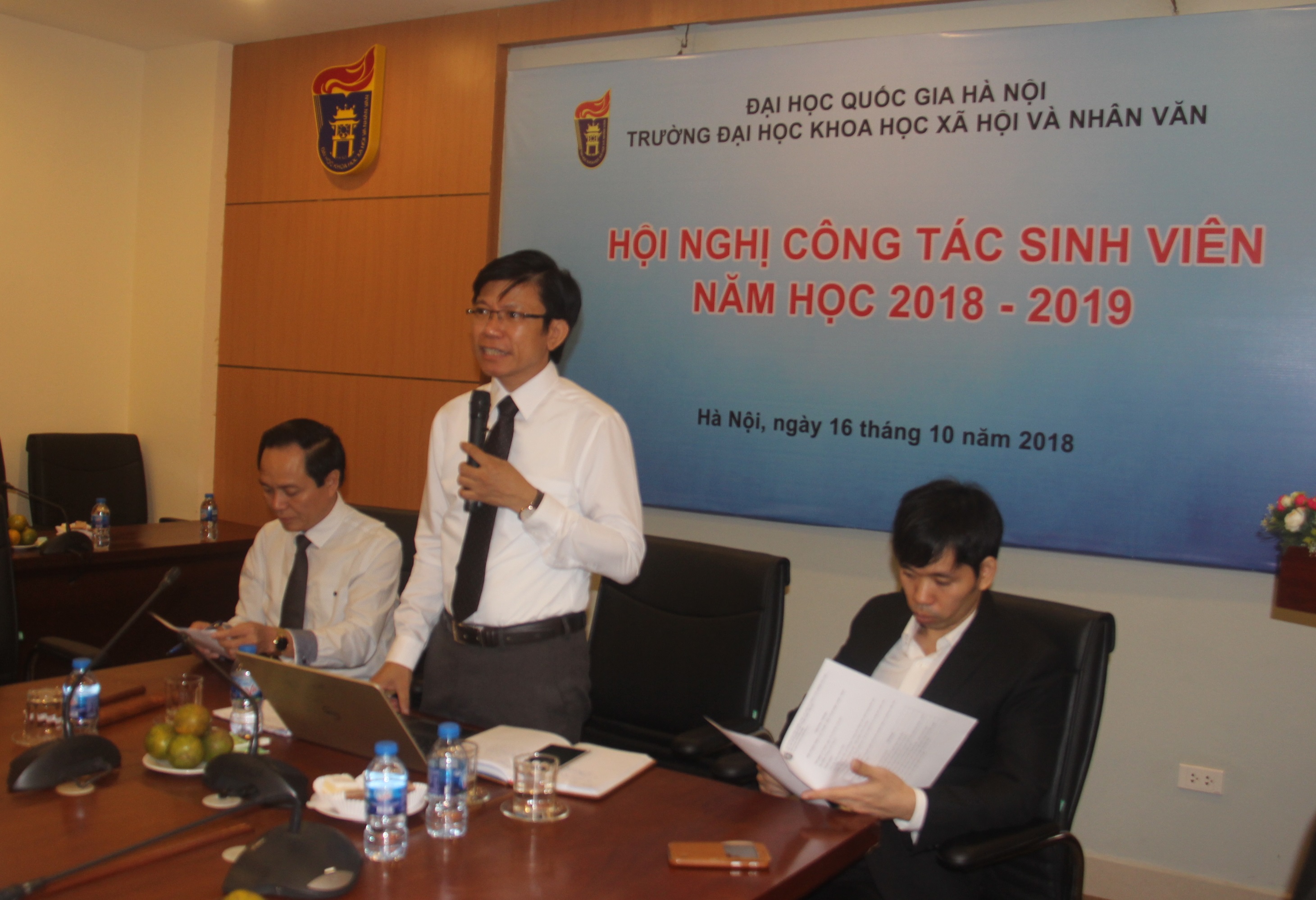
The challenges that Associate Professor Hoang Anh Tuan mentioned are:
Firstly, employers are increasingly demanding higher quality and skills from workers, creating pressure for schools to innovate in teaching knowledge, training skills, and shaping positive work-life attitudes for students. In addition, the rapidly changing and fluctuating career trends in the context of the Fourth Industrial Revolution pose a risk of training becoming outdated compared to new workforce needs. The World Economic Forum (WEF) Annual Report 2016 predicted: “For today’s elementary school-going generation, 65% will be working in jobs that do not yet exist.” According to the WEF’s forecast, between 2015 and 2020, an average of 6 million jobs will be lost, with only about 2 million new jobs created. The public administration sector will see a sharp decline, while new jobs will primarily be in high-tech and management fields.
Secondly, the traditional training model for basic sciences has faced and will continue to face many difficulties in student recruitment and training in the coming years. The number of young Vietnamese people studying abroad has steadily increased in recent years, and the trend of "studying abroad locally" through distance learning or online programs offered by foreign universities, and international joint programs of domestic universities, will explode in the near future. This reality truly challenges domestic universities if they do not innovate their programs, methods, approaches to student support, and invest in improving facilities. Currently, dozens of universities in the country have closed social science programs, and many training institutions have had to merge departments, faculties, or convert to a training-research institute model because they cannot recruit students in the social sciences and humanities. This risk is not insignificant for the future of student recruitment and training at the university, especially for basic science programs.
Thirdly, the employment structure of graduates in recent years has tended to shift towards the non-public sector (private, international, non-governmental, startups, etc.). This necessitates adjustments to training programs, increased investment in skills, proactive attitudes, and a learning mindset so that students can adapt to different work environments. The World Summit on Educational Innovation (WISE), held in New York last September, emphasized the importance of education in awareness and a "lifelong learning" mindset because knowledge acquired at university quickly becomes outdated in the 4.0 society. Only with a perspective of continuous learning and a lifelong learning mindset can workers adapt to the changing demands of their profession.
Fourth, many administrators and education experts have repeatedly warned about the slow pace of innovation in university governance thinking, especially in public universities. They fail to keep up with regional and global trends in university education, fail to recognize and predict labor market trends, and even fail to understand the changing needs of students themselves…leading to a situation where higher education governance “lags behind the needs of students,” as warned by the Ministry of Education and Training and the Association of Vietnamese Universities and Colleges.
Fifth, students and parents' demands for quality education are increasingly higher, not only focusing on knowledge content but also on accompanying services during the training process. While previously students were primarily concerned with the classroom (receiving knowledge), today they demand additional activities and services such as: facilities and learning equipment, living and self-study spaces, canteens, internships, practical training (especially overseas), professional clubs, arts and sports clubs, business networking, startup support, and especially the quality of support and care for students throughout their training…
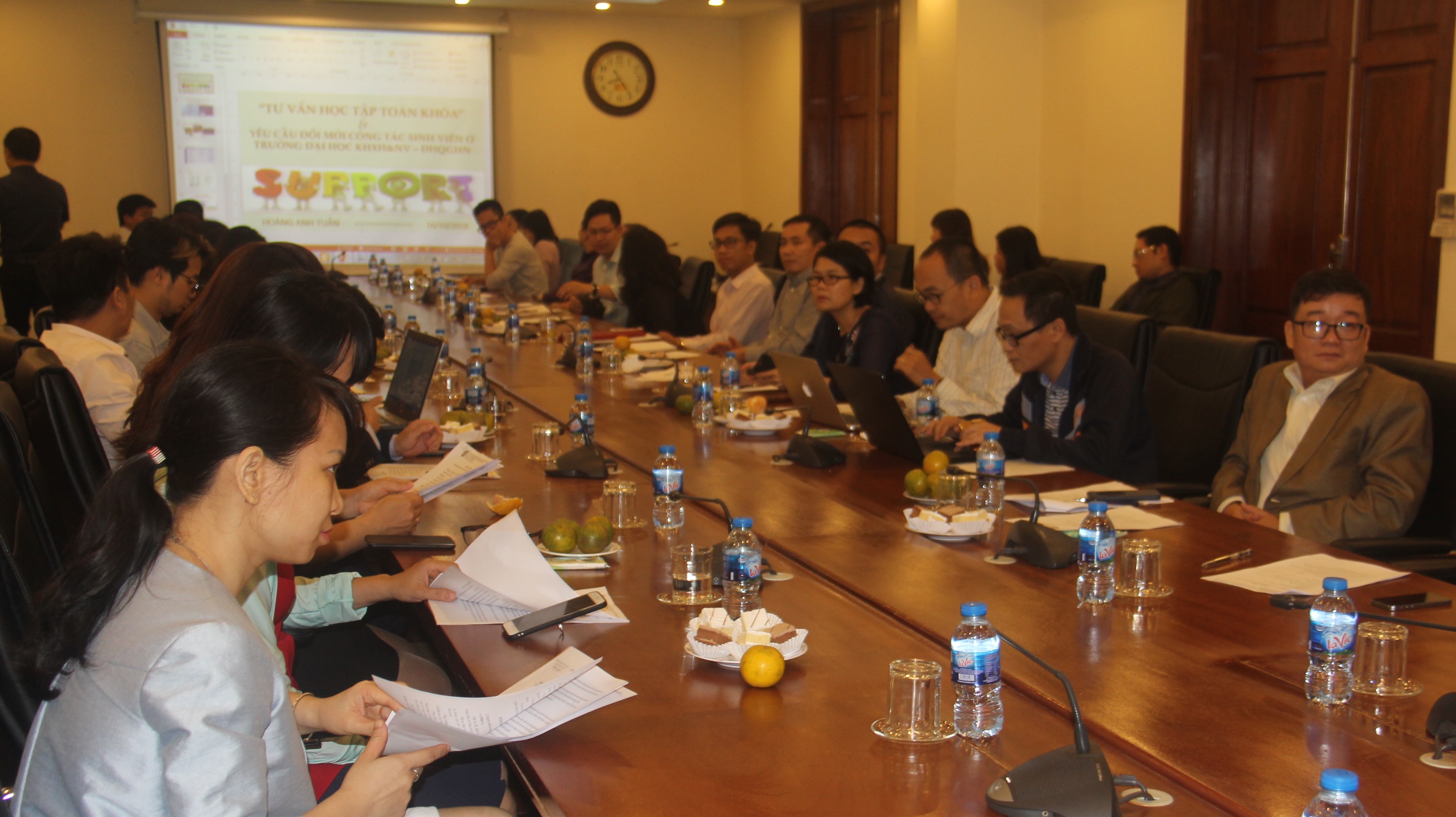
All these changes and challenges pose new demands and tasks for student care, support, and counseling: “Has our thinking on training and student affairs truly kept pace with the increasingly rapid changes and higher demands of society?” Associate Professor Hoang Anh Tuan believes that to achieve this, it is necessary to “practice and substantively improve academic counseling and student care; training units need to strengthen academic orientation for students according to the motto ‘all students are cared for throughout their studies,’ through academic counseling to promptly identify, invest in, and nurture outstanding students in various training fields…”
We need to get down to substance – we must consider effectiveness.
Associate Professor Dr. Nguyen Quang Lieu (Head of the Student Affairs and Services Department) stated that during the past academic year, student affairs activities have undergone innovations, becoming more substantive and focused on effectiveness. The university has effectively implemented a "one-stop" mechanism, minimizing administrative procedures to better serve students. Meetings between the university leadership and successful alumni have been organized more frequently, thereby strengthening connections with the university's alumni network. Cooperation between the university and businesses has been strengthened, creating more internship, practical experience, and job opportunities for students.
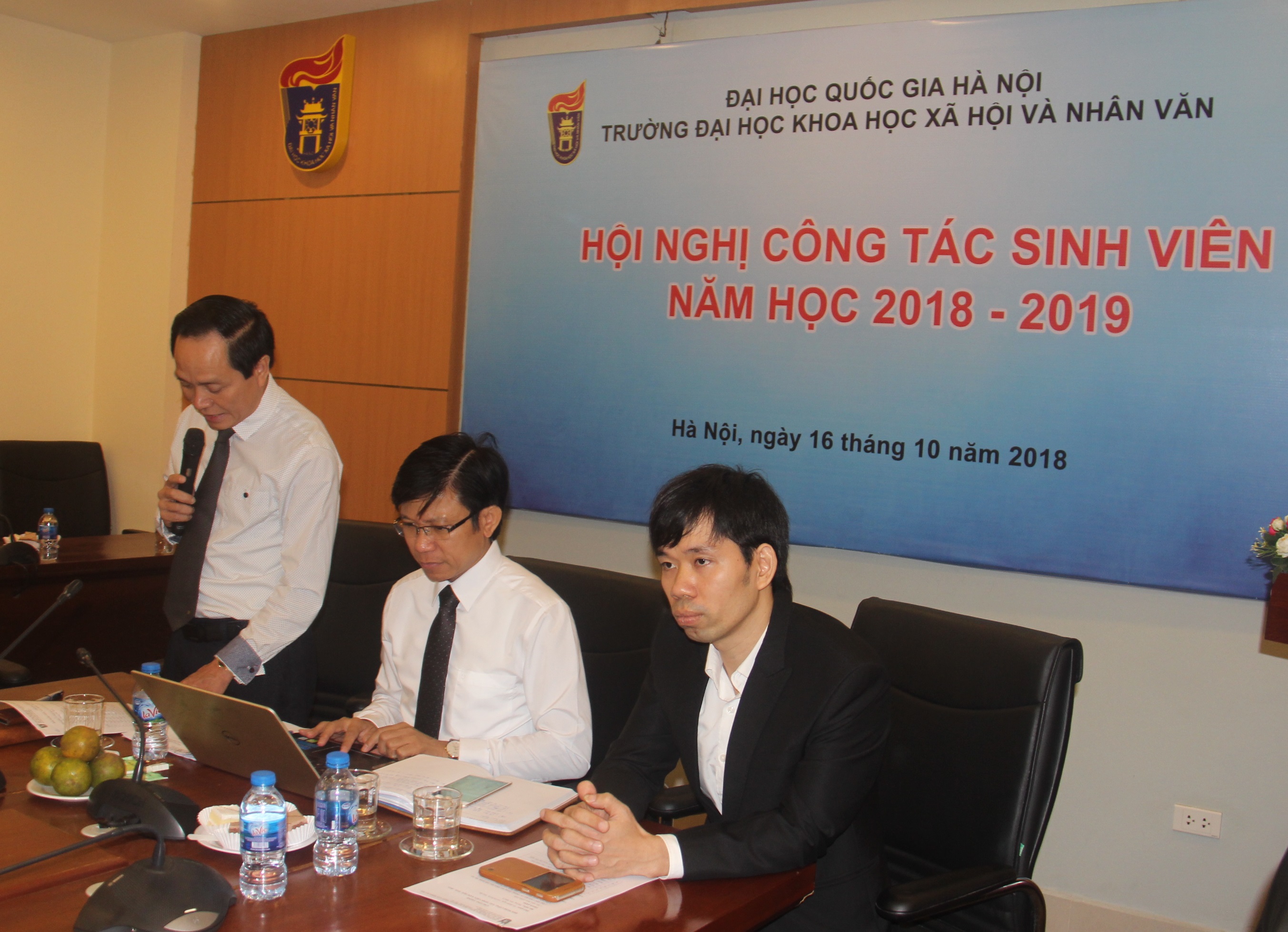
Mr. Dao Minh Quan (Deputy Head of Training Department) believes that there is still a certain overlap in student support and counseling activities: from the unit's perspective, there are academic advisors and homeroom teachers; from the Political and Student Affairs Department's perspective, there is the Center for Support and Counseling (CASA) and the department's team of specialists... Therefore, to improve the effectiveness of academic advising and homeroom teacher work, it is necessary to strengthen interaction between academic advisors and students, conduct periodic evaluations of academic advisor activities, provide regular training for academic advisors, and appropriately recognize the contributions of academic advisors.
Speaking at the conference, many faculty leaders from various training units expressed their expectations for innovation and improved effectiveness in student counseling and support. Dr. Pham Hoang Giang (Deputy Head of the Philosophy Department) shared his experience in "mentoring" to identify and nurture groups of students passionate about their specialization, creating a source for scientific research and postgraduate studies. Dr. Nguyen Ngoc Binh (Deputy Head of the Linguistics Department) shared valuable experiences from many years of studying and teaching in a Thai university environment, suggesting Jennifer Bloom's 6D model (Disarm, Discover, Dream, Design, Deliver, and Don't Settle) for student academic counseling. Dr. Dang Hoang Giang (Assistant to the Department of Vietnamese Studies and Vietnamese Language) shared his personal experience in supporting international students to integrate and study effectively…
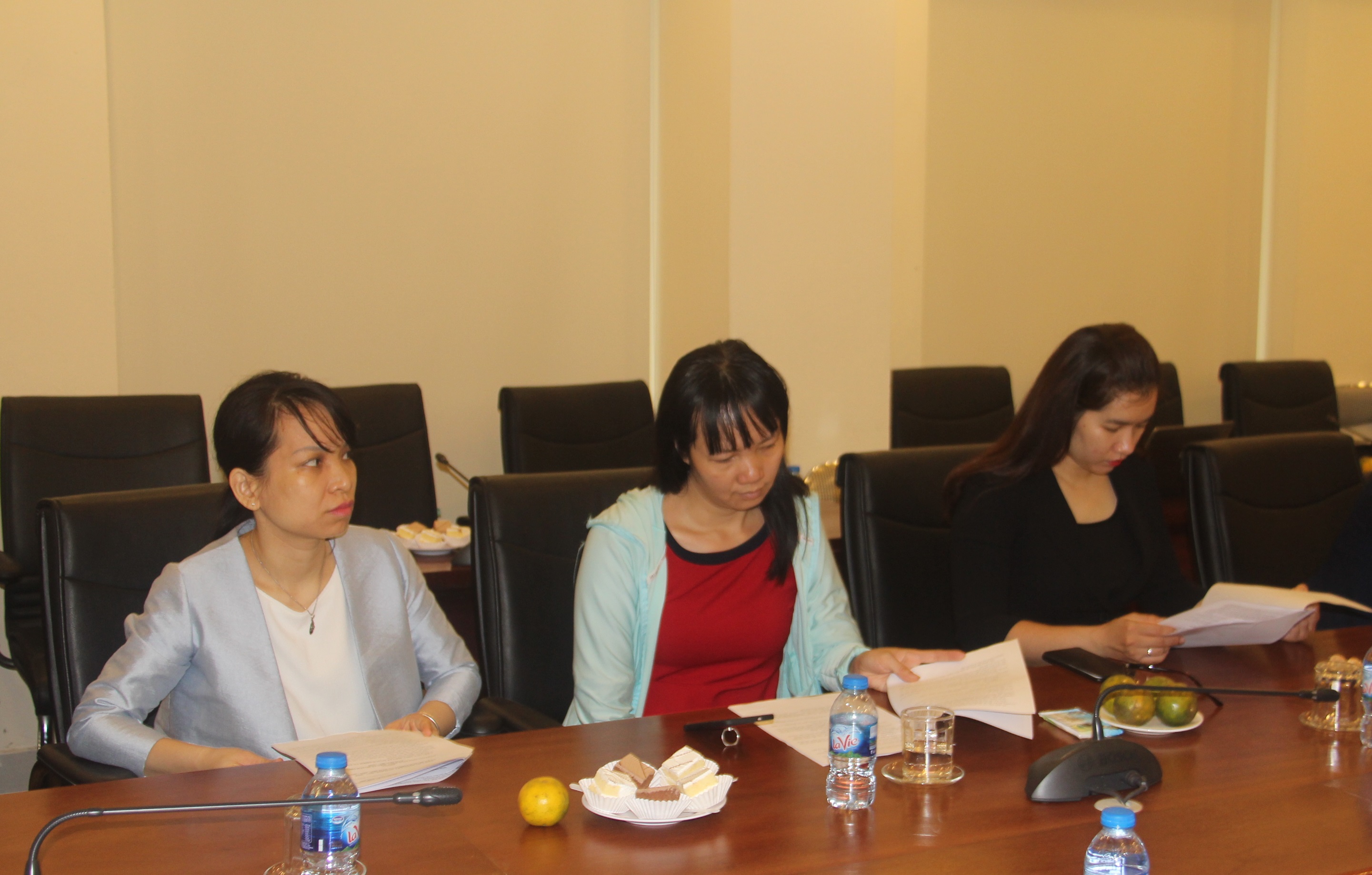
The conference identified several key activities for the 2018-2019 academic year that were discussed and approved, including: strengthening academic discipline, promoting the development of school culture, making the activities of homeroom teachers and academic advisors more substantive and effective, updating the handbook and organizing training for nearly 100 homeroom teachers and academic advisors of the school, formalizing and strengthening the role and responsibilities of homeroom teachers and academic advisors, etc.
Student affairs and training: they must be closely intertwined!
Professor Nguyen Dinh Duc (Head of the Training Department, Vietnam National University, Hanoi) emphasized: "Student affairs are also part of training. These two tasks are inseparable." Therefore, student affairs is not only the responsibility of teachers working in functional departments, not only the responsibility of homeroom teachers and academic advisors, but also the responsibility of the entire teaching staff. Through their lectures, teachers inspire students about learning goals, learning methods, and attitudes towards work and life. Each teacher not only helps equip students with specialized knowledge but also must share and empathize with each student's circumstances, understanding their personality and abilities.
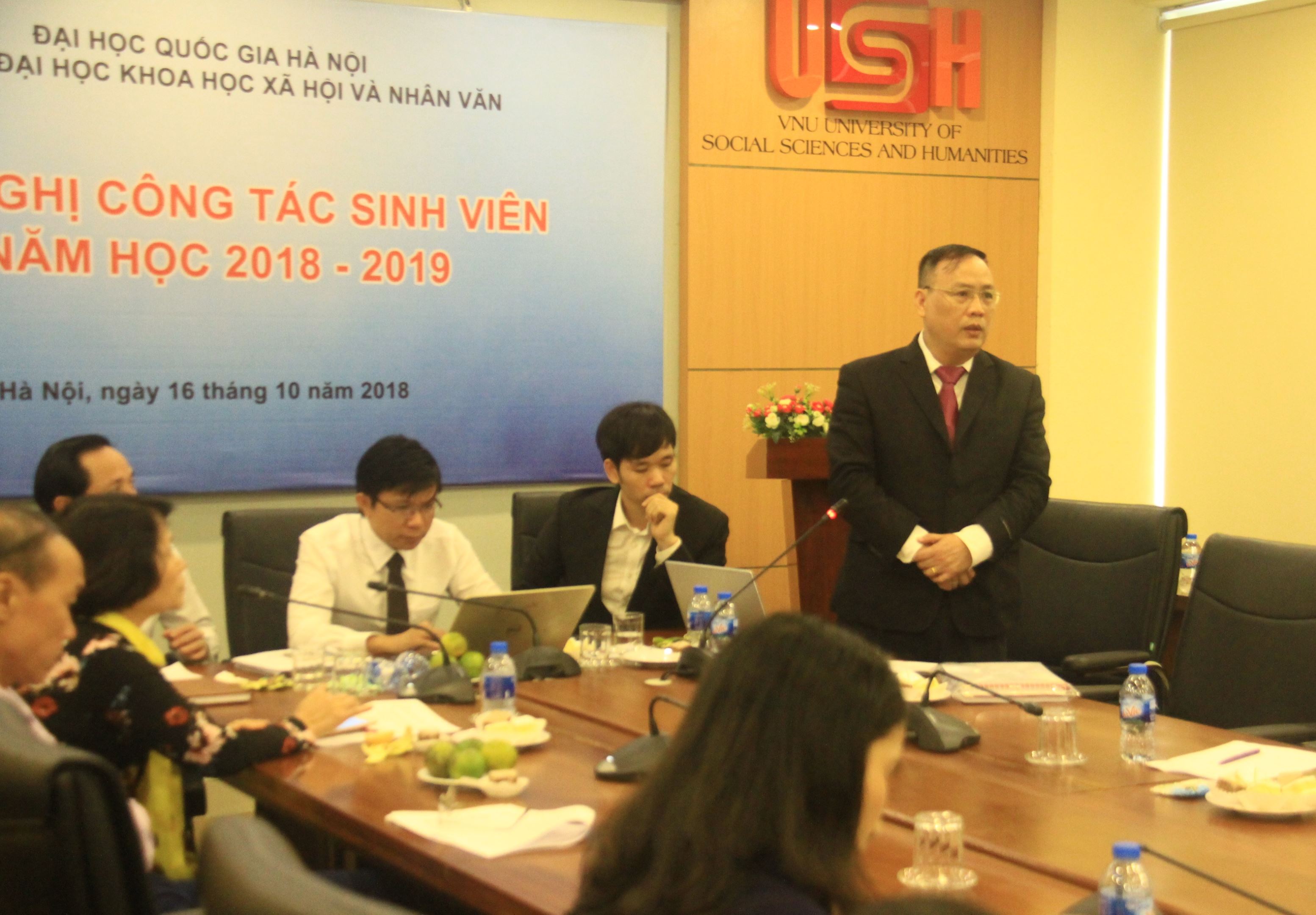
“What skills and qualities do we need to train students in today?” According to Professor Nguyen Dinh Duc, it must be “vision,” ambition, and ideals; from there, we can determine the appropriate qualities, knowledge, and skills. The school and teachers must also cultivate in students a strong character, tempered by difficult challenges. Therefore, student affairs must be closely linked to the vision and the times.
Concluding the conference, Vice Rector Hoang Anh Tuan affirmed the need to continue innovating and improving the effectiveness of student affairs in the coming time: "We must strive to ensure that all students receive attentive care throughout their studies." To achieve this goal, the University proposed that units consider integrating the two positions of homeroom teacher and academic advisor to save manpower and improve operational efficiency, enhance the effectiveness of communication between relevant departments, update and integrate the homeroom teacher-academic advisor handbook for teachers' convenience, and invest appropriately in teachers participating in the homeroom teacher-academic advisor role...
But above all, "student affairs are not just about following existing regulations; to bring the best to our students, we must do it with both our minds and hearts: our minds bring us more creative and effective solutions than rigid regulations, and love and responsibility towards students will help us connect, share, and support them more effectively," the Vice Rector emphasized, calling on everyone to join hands for the development of student affairs at the University in the coming time.
Author:Thanh Ha
Newer news
Older news